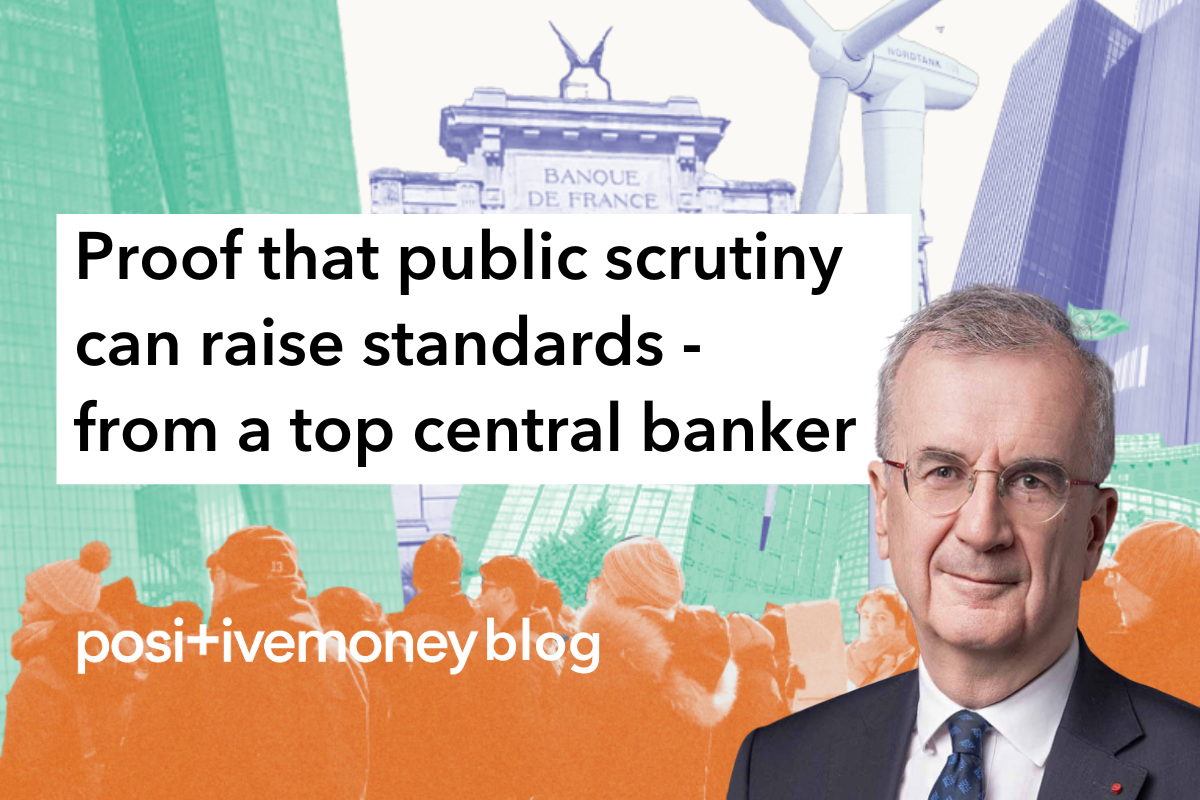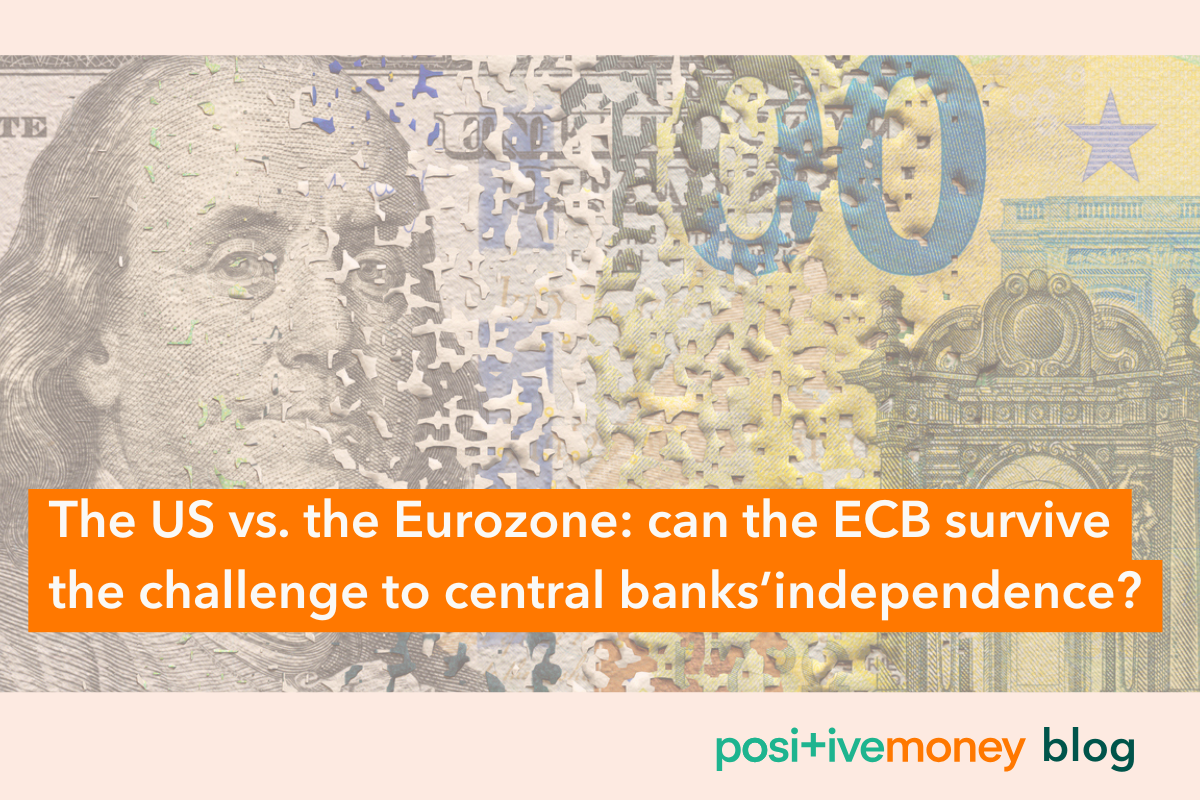
UKEU
18 February 2026
The annual discussion surrounding the European Parliament's Resolution on the European Central Bank (ECB) Annual Report is the most important democratic review of the Eurozone's financial power. The scrutiny of Frankfurt's activities is a key tool for evaluating the ECB’s policies.
This year, it takes on a critical urgency, shadowed by the very political crisis facing the US Federal Reserve (Fed).
The global debate over central bank independence has shifted. It is no longer just about protecting these institutions from politicians, it is about ensuring the institutions serve the citizens whose lives are radically shaped by their decisions. Where does Europe stand in this landscape, and what does true central bank independence really mean?
The ECB's independence is established in the EU Treaty (Article 130 TFEU), which states that the ECB must not seek or take instructions from any EU institution, government, or body. This complex, multinational framework serves as excellent "armour" against the kind of direct political capture seen in Washington, where political pressure concerning interest rates and key personnel decisions has recently escalated, as we will see in more detail later in this article.
However, the ECB’s strong shield against political interference can—and often does—lead to profound democratic isolation. But does it have to be that way?
We often forget—and many of us do not even know—that the ECB is officially accountable to the European Parliament.
The main tools we have to scrutinise its work are:
The annual Resolution that the European Parliament adopts on the Annual Report of the ECB. Members of the European Parliament (MEPs) analyse what the ECB did and give suggestions on how to shape its approach. (Suggestions, yes, because the monetary core business of the ECB is and will always be up to central bankers.)
"Monetary dialogues" where the ECB President or ECB board members answer questions.
A consultative role in the appointment of Executive Board members, who are, however, often nominated "behind closed doors".
Coming to the present day, where are we with this resolution? Let’s scan quickly the timeline for this year:
Last month: The rapporteur sent his draft to members of the European Parliament's Committee on Economic and Monetary Affairs (ECON).
Beginning of November: MEPs presented their amendments.
December 3rd or 4th: The Committee will discuss amendments.
Mid-January 2026: Vote in ECON will take place.
Mid-February 2026: Vote in plenary will take place.
So far, it seems to be plain sailing. But the truth is that the language used in the most recent draft emphasises that independence "requires that the ECB refrains from political actions," reinforcing a dangerously outdated ideology.
Central bank decisions have profound, often unequal, consequences on key social issues like the cost of living, wealth distribution, and the climate crisis. Historically, the neoliberal insistence on "technocracy" helped—and still does help—to legitimise the idea that economic power should be entrusted to experts to protect capital interests. As Branko Milanovic clearly noted on Substack, this outdated and elitist approach is based on the bias that “we do not subject medical doctors’ decisions to popular vote. Likewise, highly complex economic and political matters are to be left to the educated and competent”.
This 2025 European Parliament resolution on the ECB annual report risks reverting to this old-school mainstream view on central banking. If the ECB adheres to this narrow view of "refraining from political actions," it risks becoming detached from the societies it is supposed to serve and neglecting its wider legal obligations.
We argue that this is a misinterpretation of its mandate. Independence, as laid down in the Treaty (TFEU Article 130), means being free from political interference, not isolation from democratic accountability or societal goals.
While the parliamentary discussions go on in Brussels and Strasbourg, the recent threat to the Fed’s independence provides a stark warning.
In the United States, the Federal Reserve's independence seemed and still seems to be under relentless attack. The media has increasingly reported that the US administration tried to exert influence over the US central bank, demanding deep interest rate cuts. Actually US President Trump started explicitly demanding that the central bank slash its main interest rate to less than 1% from the range of 4.25%-4.5% to boost growth and lower government borrowing costs.
This pressure campaign extended in time to the Fed's leadership and top administration leaders, targeting senior officials like the Fed’s chair Jerome Powell, the Treasury Secretary Scott Bessent, the Fed’s central banker Lisa Cook and Federal Reserve Bank of Atlanta president Raphael W. Bostic.
The ECB President Christine Lagarde herself has warned that efforts to undermine the Fed’s independence pose a "very serious danger" to the global economy.
This crisis highlights why central bank independence is a cornerstone of stable economic policy: it prevents short-term political pressures from fueling inflation or destabilising the economy over the long term. This said, we know how important balance is here. Independence doesn’t mean being free of any democratic control. A healthy modern democracy needs independence and accountability to go hand in hand.
To maintain long-term legitimacy, the ECB must match its independence with equally strong democratic accountability.
The ECB Annual Report Resolution is the mechanism for the elected officials of the European Parliament to make this demand.
We are urging the Parliament to push for a Resolution that is not a theoretical exercise, defending a technocratic definition of central banking, but rather an opportunity to adapt its policies to support the collective democratic will of the European Union.
This includes being mindful of how ECB decisions impact the daily lives and social needs of millions of European citizens, as well as their quality of life, such as the right to clean air, and the need to develop clean energy solutions for businesses and consumers around Europe.
By strengthening accountability, Europe can prove that central bank independence does not have to mean democratic isolation.
